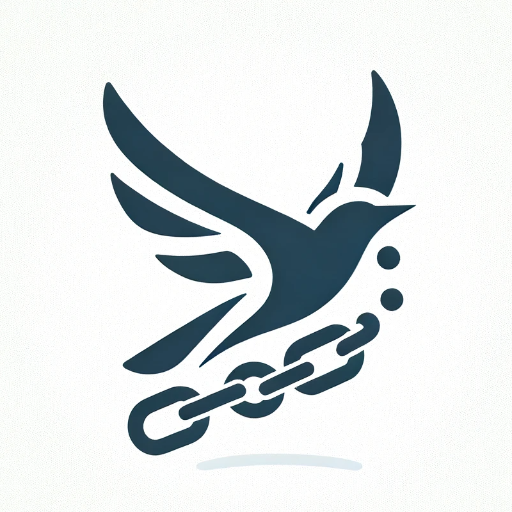Maritime Law Navigator-AI-based maritime law guidance.
AI-powered insights for maritime law.
What are the legal implications of maritime boundaries?
How do I comply with international maritime regulations?
Can you explain the law of the sea regarding environmental protection?
Guide me through resolving a maritime dispute.
Related Tools
Load More
US Law
Legal research assistant for US laws at federal and state levels.

International Law Helper
Ask any question on International Law

US Tax Law Navigator
Formal, professional US tax law expert.

MDR Navigator
Medical Device Expert on MDR 2017/745, IVDR 2017/746 and related MDCG guidance

! Marine Navigator !
Adaptive maritime guide for navigation and sea knowledge.
International Law Advisor
Advises on international legal matters affecting the organization.
20.0 / 5 (200 votes)
Introduction to Maritime Law Navigator
Maritime Law Navigator is designed as a specialized tool that provides deep, nuanced insights into maritime law, particularly focused on international law, admiralty issues, and ocean governance. Its purpose is to support legal practitioners, policymakers, shipping companies, and other maritime stakeholders by offering detailed guidance on complex legal frameworks governing seas, oceans, and inland waterways. With expertise in conventions such as UNCLOS (United Nations Convention on the Law of the Sea), shipping regulations, environmental laws, and maritime disputes, it serves as a comprehensive reference for legal inquiries in the maritime domain. The design of Maritime Law Navigator incorporates both theoretical knowledge and practical applications, meaning that it is capable of addressing real-world issues like territorial water disputes or flag-state control. For example, in a scenario where a shipping company needs advice on navigating the complexities of cross-border shipping regulations in international waters, Maritime Law Navigator can provide a step-by-step breakdown of applicable treaties, safety regulations, and jurisdictional issues.

Core Functions of Maritime Law Navigator
Interpretation of Maritime Treaties and Conventions
Example
Providing legal guidance on the interpretation of UNCLOS provisions related to exclusive economic zones (EEZs).
Scenario
A government is in a territorial dispute over a newly discovered oil field located in a disputed area of the continental shelf. Maritime Law Navigator helps by interpreting relevant clauses of UNCLOS to advise on the rights and limitations each state has over the resource.
Advising on Shipping Regulations and Compliance
Example
Offering compliance guidance for shipping companies operating under multiple jurisdictions, such as understanding SOLAS (Safety of Life at Sea) requirements.
Scenario
A shipping company wants to operate a fleet of cargo vessels across international borders but is unclear about which safety and environmental regulations it must comply with. Maritime Law Navigator can provide detailed advice on SOLAS, MARPOL (Marine Pollution), and the Ballast Water Management Convention to ensure the company adheres to international standards.
Resolving Maritime Disputes and Arbitration
Example
Guiding parties through arbitration procedures in maritime boundary disputes or shipping contract disagreements.
Scenario
Two countries are involved in a maritime boundary dispute over fishing rights in the South China Sea. Maritime Law Navigator provides legal insights into arbitration procedures through international courts or organizations like ITLOS (International Tribunal for the Law of the Sea), helping the parties resolve the conflict through legal mechanisms rather than military escalation.
Target Users of Maritime Law Navigator
Shipping Companies and Marine Operators
These users, who navigate both domestic and international waters, would benefit from legal guidance on compliance with international maritime law, port-state control, and flag-state regulations. For instance, shipping companies dealing with the complexities of different regulatory frameworks as they move between territorial waters would rely on Maritime Law Navigator to ensure they comply with safety and environmental standards.
Legal Practitioners and Maritime Lawyers
Maritime lawyers working on cases related to admiralty law, environmental protection, or international maritime disputes are ideal users. Maritime Law Navigator offers them quick access to detailed legal analyses and up-to-date interpretations of international treaties like UNCLOS, as well as guidance on handling litigation and arbitration in international waters or cross-border maritime disputes.

How to Use Maritime Law Navigator
Step 1
Visit aichatonline.org for a free trial without login, also no need for ChatGPT Plus.
Step 2
Familiarize yourself with the interface. Look for categories related to maritime law such as international waters, shipping regulations, and environmental policies.
Step 3
Use the search bar or keyword-based filtering to find specific maritime topics or legal cases. This will help you navigate quickly through various legal frameworks or issues.
Step 4
Consult the detailed guidelines, articles, or Q&A sections for comprehensive insights on international conventions like UNCLOS, shipping regulations, or jurisdictional disputes.
Step 5
Leverage Maritime Law Navigator’s AI-powered assistance for case studies, legal writing, or scenario analysis. You can ask detailed maritime law questions for real-time guidance and advice.
Try other advanced and practical GPTs
MicroSims for Education
AI-powered tool for interactive learning simulations

Auteur Virtuel
AI-powered writing for all genres

Python Code to Diagram Assistant
AI-powered diagram generation from Python code

Big 5 Personality Test
AI-Powered Insight into Your Personality

メルカリ出品アシスタント
AI-driven tool for crafting product descriptions

Job Finder
Find Your Next Job with AI Assistance

FANZAソムリエ
AI-Powered FANZA Content Finder

Image Anti-Censorship
AI-Powered Image Creation, Policy Compliant.

Article Summarizer Pro
AI-powered summaries tailored to your needs

Notion Avatars
AI-powered personalized avatars for everyone

Manifestation Mentor GPT
AI-powered guide for manifesting success

Image to Text Extractor
AI-powered text extraction made easy.

- Legal Research
- Case Studies
- Regulatory Guidance
- International Conventions
- Environmental Law
Frequently Asked Questions About Maritime Law Navigator
How can Maritime Law Navigator assist with real-world maritime cases?
Maritime Law Navigator provides detailed insights on international laws such as UNCLOS, shipping regulations, and environmental protocols. It helps users analyze real-world scenarios by offering expert advice on maritime disputes, territorial waters, and shipping operations.
Is the tool suitable for academic purposes?
Yes, Maritime Law Navigator is designed for research and academic writing. It offers in-depth resources for legal theories, case law analysis, and international maritime conventions, making it suitable for scholars and students in maritime law.
Can I use this tool to prepare for maritime law exams?
Absolutely. The tool provides comprehensive materials on admiralty law, jurisdictional disputes, and environmental maritime laws, which are essential for studying and preparing for maritime law exams.
How does the AI-powered feature work in Maritime Law Navigator?
The AI functionality allows users to ask detailed maritime law questions and receive expert-level answers. It can analyze specific cases, provide legal advice, and assist with drafting legal documents or resolving complex maritime issues.
What types of international maritime conventions are covered?
The tool covers a wide range of international maritime conventions, including UNCLOS, SOLAS, MARPOL, and various IMO regulations. It provides analysis and application of these laws in different legal contexts.